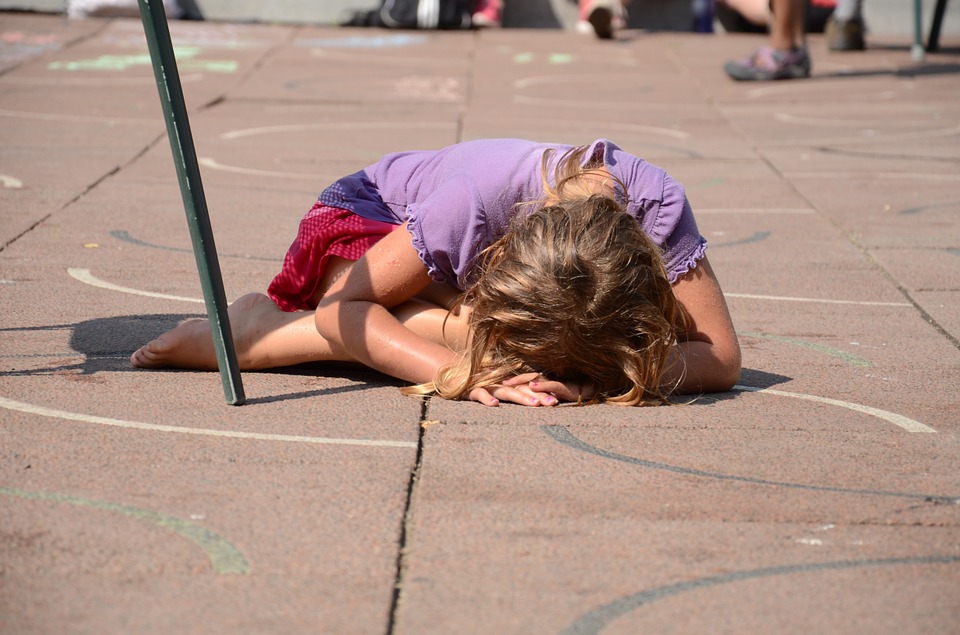LONDON: Every morning when we say goodbye to our children at the school gate, we send them off on a perilous journey. For most kids, concerns about homework, tests and lost kits pale into significance compared with their real worries: is the row that spilled out on Snapchat last night going to keep going? Who will they sit with at lunch?
Research shows youngsters are the most likely to say they have been left out by classmates at least once in the last month.
Yet bullying is only the visible tip of the iceberg. The vast majority of children’s social cruelty is kept out of sight of adults and is perpetrated among friendship groups.
While researching my new book, The Friendship Maze, I found plenty of research showing that children are now behaving more cruelly at a younger age than ever before. Knowing how much trouble they will get into if they are caught bullying others, this meanness ends up getting channeled underground into “relational aggression”, which ranges from ignoring and dirty looks to put-downs and rumor-mongering.
The way to steer them away from this is to help them to create meaningful friendships in which they feel happy and confident enough not to slip into unkind behavior. Here’s how to do it:
Steer off social media
Nearly one in four pupils in the UK is considered an “extreme” internet user, exposing them almost constantly to an arena where social conflict can break out at any moment. A study has found the more time 14-year-olds spent online, the more likely they were to get caught up in cyberbullying.
What to do: Set limits and stick to them: delay giving children access to social media for as long as possible, and certainly not before the minimum age, which is 13. When they do sign up, research suggests the sweet spot is using it for no longer than an hour a day, after which point they are more likely to get dragged into rows.
Home phones
More primary schools are sticking up signs on their gates saying: “Put your phones away. Your child is pleased to see you.” We now live in a culture where more families than ever have two parents in employment — and phones are often responsible for blurring the lines between home and work. It is no surprise then that researchers found that in families where parents are more distracted by phones, they talk to their children as much as a fifth less. And our own rising stress levels make us more likely to palm our children off with gadgets, which a study of nearly 900 children aged six months to two years found was linked to speech delays. The outcome is that children start school without the language to communicate, which is crucial to making firm friendships.
What to do: When our phones run so much of our lives, it’s easy to overuse them in front of the children. It’s critical your child never feels your phone is more important than they are, so turn off your notifications and use auto-reply more, so you don’t feel the need to interrupt your time with them. Flip the lid down on your laptop when they enter the room to show you want to chat. Draw up a list of screen use rules for your home that everyone must abide by. These may include no phones for anyone within an hour of coming home — so you can reconnect and talk about the day — as well as a ban at meals, during family outings or before bedtime, another important time to connect. Schedule phone-free one-on-one time with your child and frame it as a reward for everyone, not a punishment.
The power of play
Nursery and school curriculums have fallen victim to reduced break times in order to keep up with national targets. Recent research from University College London has found that primary school pupils have 45 minutes less break time a week than in 1995, while secondary pupils have 65 minutes fewer. Play is how children learn friendship skills: where they learn how to compromise, think creatively, recognize important facial and verbal cues, and ultimately learn what behavior is acceptable.
What to do: Get them outside with others for unstructured play, and see it as making a conscious decision to let them find out more about themselves and their peers.
Face reality
Often conflict is sold on reality shows as entertainment. Studies show that reality TV shows contain an average of 85 verbal attacks, insults and snide remarks each hour, almost twice that of comedies, dramas, and soap operas.
A study of more than 1,100 girls by the Girl Scouts Research Institute found that those who regularly watch reality TV accept and expect more aggression in their lives; the unintended lesson here is that our children come to believe betrayal is how to get attention and social status.
What to do: Watch TV with your child and talk about the behavior you are seeing, whether it’s kind or unkind, and how you think people should behave to one another.
Source: The Telegraph









Comment